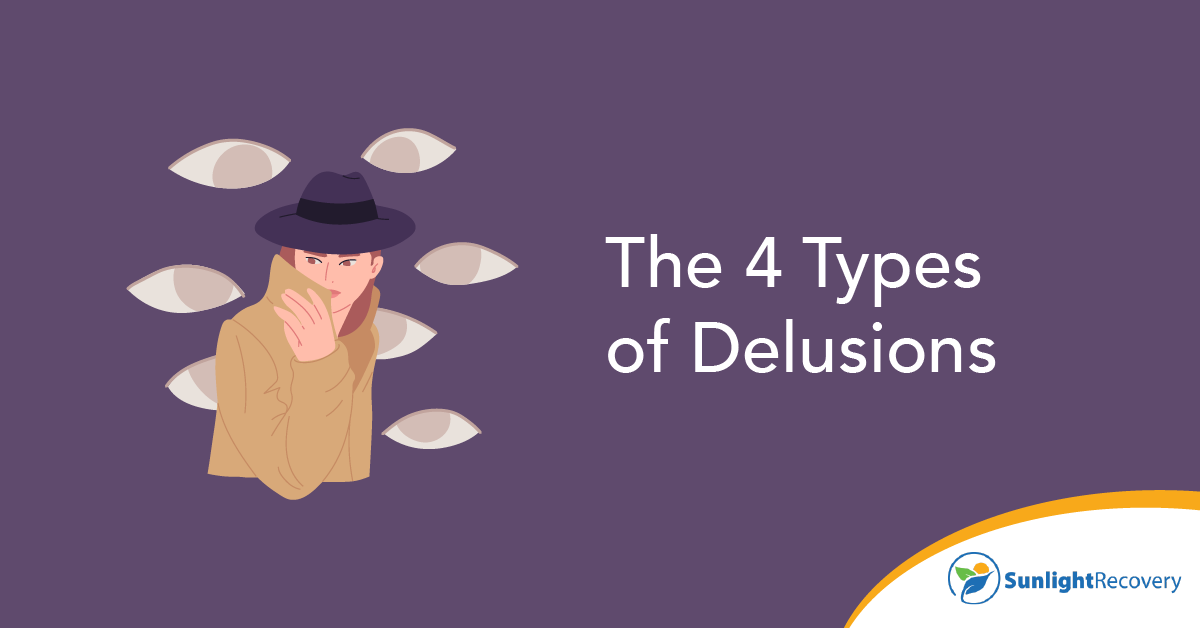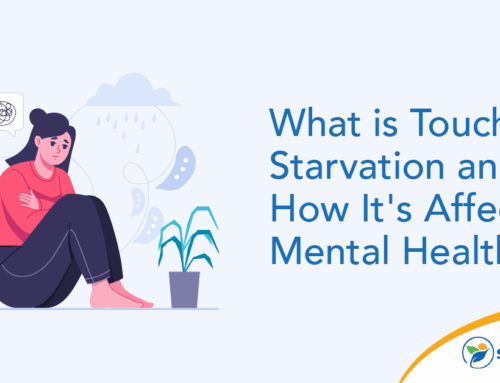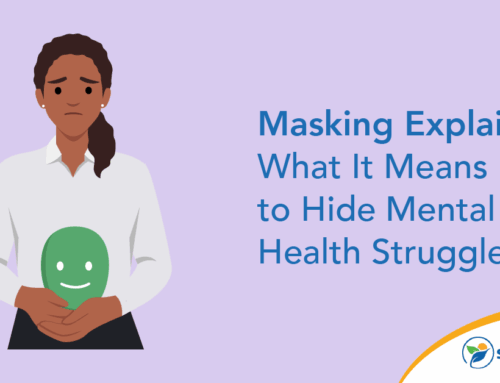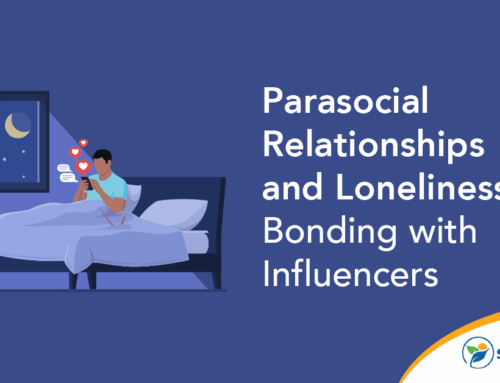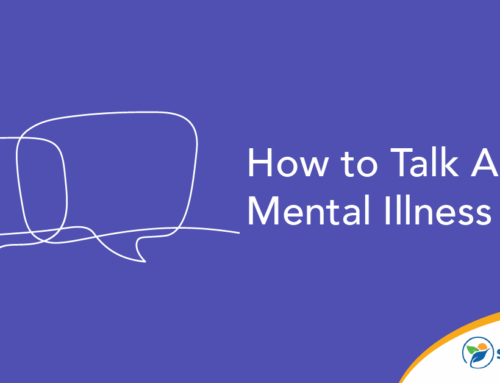People love to use the word “delusional” casually as an insult, jab or joke for someone who doesn’t quite grasp reality. But many don’t realize delusional disorder is a real psychotic disorder impacting 0.02% of the population. And those who have it can struggle with serious symptoms that affect their daily life.
What Are Delusions, and How Do They Develop?
A delusion is a fixed belief in something that can’t be shaken even when presented with concrete conflicting evidence. Simply put, these are inaccurate and false beliefs. When someone is delusional, it means they can’t come to grips with reality. For example, someone who’s schizophrenic or paranoid might be convinced the government is monitoring them, despite being shown evidence that proves this to be untrue.
They can be caused by a combination of biological, environmental and genetic factors. Some research suggests delusions are typically linked to either neurological conditions or chemical imbalances in the brain. Additionally, someone who’s predisposed to delusional thoughts can be triggered into deeper delusions by a traumatic life event.
What Is Delusional Disorder?
Delusional disorder is when a person experiences one or more false beliefs that last at least 1 month. Many psychiatric disorders have delusions as a side effect, but delusional disorder is a condition where the delusions are the most prominent symptom.
Often, other symptoms occur in response to the delusion itself. For example, someone who fears they’re going to be attacked might start to isolate themselves and stay home all the time.
The 4 Types of Delusions
There are four main types of delusions.
1. Paranoid (Persecutory)
Paranoid delusions revolve around believing that a person or group is out to harm, mistreat or sabotage you or someone close to you. This belief is completely unfounded and lacking evidence, but the person who has paranoid delusions can’t be convinced otherwise.
Paranoid delusions are the most common type. People experiencing persecutory delusions may also have the following symptoms:
- Anxiety
- Insomnia
- Depression
2. Grandiose
Individuals who have delusions of grandeur believe they’re superior to everyone else. Grandiose delusions are a common side effect of other psychiatric conditions, such as bipolar disorder and schizophrenia.
Often, people who have delusions of grandeur engage in risky or dangerous behaviors because they believe they’ll always find a way out of trouble, that typical dangers don’t apply to them or that they can survive anything.
Some of the common symptoms that come alongside grandiose delusions are:
- Believing you can cure diseases
- Thinking you’re God or can talk to God
- Believing you’re superhuman
- Believing you’re meant to be famous or wealthy
While grandiose delusions are often tied to a mental health condition, such as delusional disorder, bipolar disorder or schizophrenia, they could also simply be a personality trait in a person.
A 2023 study found that individuals with grandiose delusions have a “lower motivation to engage in standard mental health treatment.” This is likely because it’s hard for them to imagine that they’re flawed in any way or that anyone would be capable of helping them.
3. Somatic
Somatic delusions are false beliefs a person holds about their own body. Often, the person will believe they have an illness or a medical condition that doesn’t exist. Even after undergoing various medical tests that prove their good health, they’ll continue holding the false belief.
For example, someone will can incorrectly believe they’re pregnant, they have a rare medical condition, they have parasites, or they’re missing an internal organ.
They may also experience:
- Body dysmorphia
- Anxiety
- Depression
4. Erotomanic
Erotomanic delusions involve falsely believing someone is in love with you. Most often, erotomanic delusions target a person who’s a stranger and of a higher status, such as a celebrity or athlete.
Someone with erotomanic delusions will believe their “crush” is communicating to them in secret. For example, if the celebrity gives an interview on the radio, they’ll believe the interview holds a secret message just for them. In extreme cases, this can lead to dangerous behaviors, such as stalking and attacks.
Erotomanic delusions often onset rapidly and can be chronic without professional intervention. Women are more likely to experience erotomanic delusions, but when men experience them, they have a higher rate of stalking and violent acts.
Warning Signs and Symptoms
You buy a lottery ticket and convince yourself this time you’ll win. Or you start a diet and tell yourself you’ll be down 20 pounds in 2 weeks. You might worry these are delusions, but they can more accurately be described as false hopes. The truth is, if you’re presented with conclusive evidence that your belief is wrong or unlikely, you’ll probably change your mind.
So, how do you know if a person is experiencing delusions? Here are some of the warning signs and symptoms:
- They have persistent beliefs no one agrees with.
- They won’t change their minds even when given clear proof that their beliefs are wrong.
- They become defensive or suspicious when discussing their beliefs.
- They’re isolating.
- They are making illogical connections (such as a celebrity was posting for them on social media or a natural disaster was a plot to harm them).
- Their beliefs are starting to impact their ability to function day-to-day (difficulties going to work or school or leaving the house).
- They’re having hallucinations.
Treatment and Management
Delusions can be challenging to treat because the very nature of the condition is that the person doesn’t believe they’re wrong. So why should they feel they need help?
However, professional treatment is necessary because delusions can carry on for an extended period if there’s no intervention.
A mental health professional can diagnose the disorder if they notice their patient is experiencing symptoms for 1 month or longer.
Usually, the health care team first requests that the patient undergo various diagnostic tests (blood, imaging and urine tests) to rule out that a medication, substance, or medical condition is the root cause of the symptoms.
Once that’s ruled out, the treatment plan typically includes medication and further counseling. Treatment can vary if the patient is diagnosed with delusional disorder versus being a symptom of another mental health condition.
Antipsychotic medications help patients see a reduction in their symptoms. However, many patients with delusions stop taking their medications because they believe they’ll be fine without them. This is why therapy plays a crucial role in the treatment plan.
Mental Health Support at Sunlight Recovery
If you’re concerned about delusional thoughts or other mental health symptoms, Sunlight Recovery can help. Our highly experienced and licensed professionals are skilled in all areas of behavioral and mental health. With the right support, your symptoms can be effectively managed and you can return to your normal self. Contact us today to learn about our mental health treatment programs.


